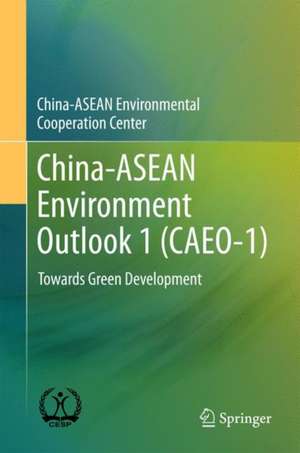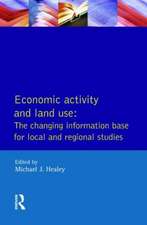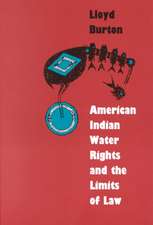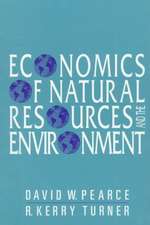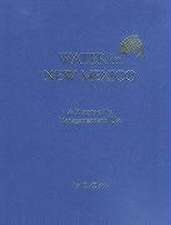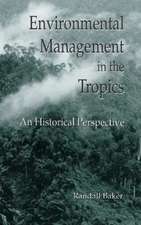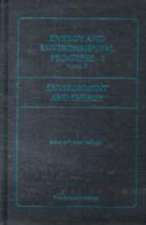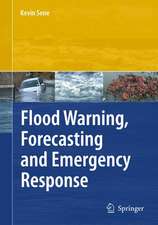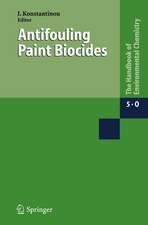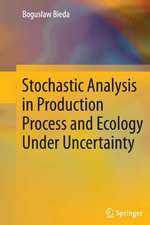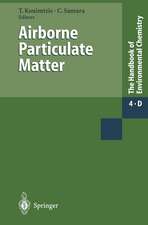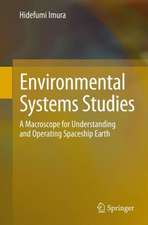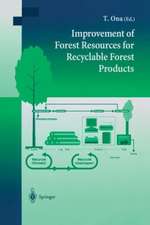China-ASEAN Environment Outlook 1 (CAEO-1): Towards Green Development
Autor China-ASEAN Environmental Cooperationen Limba Engleză Hardback – 6 oct 2017
Intended for decision makers from the government, business sector, and civil societies who are working to boost green development and China-ASEAN cooperation, it is also a valuable resource for government officials, researchers and non-experts interested in creating a balanced relationship between the environment and development.
| Toate formatele și edițiile | Preț | Express |
|---|---|---|
| Paperback (1) | 640.06 lei 6-8 săpt. | |
| Springer Nature Singapore – 12 ian 2019 | 640.06 lei 6-8 săpt. | |
| Hardback (1) | 646.30 lei 6-8 săpt. | |
| Springer Nature Singapore – 6 oct 2017 | 646.30 lei 6-8 săpt. |
Preț: 646.30 lei
Preț vechi: 760.35 lei
-15% Nou
Puncte Express: 969
Preț estimativ în valută:
123.67€ • 129.12$ • 102.35£
123.67€ • 129.12$ • 102.35£
Carte tipărită la comandă
Livrare economică 05-19 aprilie
Preluare comenzi: 021 569.72.76
Specificații
ISBN-13: 9789811062100
ISBN-10: 9811062102
Pagini: 234
Ilustrații: LI, 234 p. 51 illus., 29 illus. in color.
Dimensiuni: 155 x 235 x 23 mm
Greutate: 0.58 kg
Ediția:1st ed. 2018
Editura: Springer Nature Singapore
Colecția Springer
Locul publicării:Singapore, Singapore
ISBN-10: 9811062102
Pagini: 234
Ilustrații: LI, 234 p. 51 illus., 29 illus. in color.
Dimensiuni: 155 x 235 x 23 mm
Greutate: 0.58 kg
Ediția:1st ed. 2018
Editura: Springer Nature Singapore
Colecția Springer
Locul publicării:Singapore, Singapore
Cuprins
Overview of Green Development.- China-ASEAN Green Development Status.- Drivers, Features and Opportunities for Regional Green Development.- Policy Measures for Regional Green Development.- China-ASEAN Green Development Practice.- An Outlook into the Future: Towards Green Development.
Notă biografică
Dr. Zhou Guomei Dr. Zhou Guomei has more than 20 years’ experience as an environmental economist and policy researcher for a number of studies on environmental and economic policies, providing research support for national decision-making for environmental protection in China. Dr. Zhou was senior visiting scholar of MIT of USA, Kyoto University of Japan and York University of the United Kingdom. She also worked as consultant and environmental economist expert in a number of studies for UNEP, World Bank, ADB, JICA and other international sponsors. Dr. Zhou Guomei is the state candidate of New Century National Hundred, Thousand and Ten Thousand Talent Project in 2009, which issued by the Ministry of Human Resource and Social Security and other 7 relevant ministries of China. She was granted in 2012 Special Government Allowance from the State Council. Her academic interests are global environmental issues, international environmental policies, environmental economics, economic evaluationof environmental impacts, etc. She has published more than 100 research papers and 12 books (including co-authors). Dr. Zhou Guomei is Deputy Director General of China-ASEAN Environmental Cooperation Center of Ministry of Environmental Protection of China, and Deputy Coordinator of Chief Advisor Support Team of the China Council for International Cooperation on Environment and Development (CCICED).
Dr. Shi Feng
Dr. Shi Feng got his PhD from the University of Georgia with a major of resource and environment research. After graduation, he worked in environmental protection governmental departments in both the United States and China. His recent academic interests include environmental laws and regulations, pollution prevention and control, water environmental protection, international cooperation on environmental protection, regional development strategy etc. He has published a number of articles and research papers, in Chinese and English and 3 books (including co-authors). Dr. Shi Feng is now the Acting Director of China-ASEAN Environmental Cooperation Center of Ministry of Environmental Protection of China. Mr. Guo Jing
Mr. Guo Jing joined the National Environmental Protection Agency (NEPA, then upgraded to State Environmental Protection Administration-SEPA in 1998; and the Ministry of Environment Protection-MEP in 2008) in 1991. From 1991 to 1996, he worked in the Department of Pollution Management of NEPA, with main responsibilities of developing policies on urban environment management and those on industrial pollution control and prevention. During that period of time, as a senior project manager, he participated in the World Bank funded project of “Promoting Cleaner Production in China” and APELL chemicals emergency responding Program developed by United Nations Environment Program (UNEP). From 1996 to 1999, he was dispatched to the Chinese Embassy in USA, working for Science and Technology Office of the Embassy and took charge of Sino-US environmental cooperation activities. During 1999 and 2004, Guo Jing worked in the Department of International Cooperation of MEP as Deputy Division Director and then Division Director. He was in charge of regional cooperation affairs between China and other countries, regions and organizations, including inter alia, the environmental cooperation between China, Japan and Korea; China’s environmental cooperation partnership with Southeast Asia, East Asia, and Northeast Asia; Sino-African environmental cooperation; China’s collaboration with EU and OECD; as well as China’s cooperative initiatives pertinent to environment in Greater Mekong Sub-region (GMS). Starting from 2005, he took the position of the Secretariat Director of the China Council for International Cooperation on Environment and Development (CCICED). With his special expertise and professional experience, he was responsible for daily operation of the Council, fund raising, organizing annual major events, managing policy study programs, etc. In 2009, Guo Jing was appointed as Deputy Director General of the Foreign Cooperation Center affiliated to MEP, and served as the Assistant Secretary-General of CCICED at the same time. His main responsibilities included management of global environmental policy studies and supervising the day-to-day operation of CCICED Secretariat. In 2010, Guo Jing was designated as the Deputy Director General of the China-ASEAN Environmental Cooperation Center (CAEC), a newly-founded institute affiliated to MEP, to facilitate establishment of CAEC. At present, as the Director General of CAEC, he is mandated to boost regional environmental cooperation between China and ASEAN as well as China’s cooperative efforts with other regional organizations, and initiates and manages environmental policy studies at both global and regional levels.
Before entering into his service in the Ministry in 1991, Guo Jing worked in a research institution under China Earthquake Administration; then he joined the Northern China Electric Power Plant Design Institute as an engineer. During 1979 and 1983, Guo Jing studied in Peking University and graduated with a Bachelor Degree in Geology; and from 1988 to 1991, he was a post-graduate student in Environmental Science Center of Peking University and earned a Master Degree of Science.
Dr. Shi Feng got his PhD from the University of Georgia with a major of resource and environment research. After graduation, he worked in environmental protection governmental departments in both the United States and China. His recent academic interests include environmental laws and regulations, pollution prevention and control, water environmental protection, international cooperation on environmental protection, regional development strategy etc. He has published a number of articles and research papers, in Chinese and English and 3 books (including co-authors). Dr. Shi Feng is now the Acting Director of China-ASEAN Environmental Cooperation Center of Ministry of Environmental Protection of China. Mr. Guo Jing
Mr. Guo Jing joined the National Environmental Protection Agency (NEPA, then upgraded to State Environmental Protection Administration-SEPA in 1998; and the Ministry of Environment Protection-MEP in 2008) in 1991. From 1991 to 1996, he worked in the Department of Pollution Management of NEPA, with main responsibilities of developing policies on urban environment management and those on industrial pollution control and prevention. During that period of time, as a senior project manager, he participated in the World Bank funded project of “Promoting Cleaner Production in China” and APELL chemicals emergency responding Program developed by United Nations Environment Program (UNEP). From 1996 to 1999, he was dispatched to the Chinese Embassy in USA, working for Science and Technology Office of the Embassy and took charge of Sino-US environmental cooperation activities. During 1999 and 2004, Guo Jing worked in the Department of International Cooperation of MEP as Deputy Division Director and then Division Director. He was in charge of regional cooperation affairs between China and other countries, regions and organizations, including inter alia, the environmental cooperation between China, Japan and Korea; China’s environmental cooperation partnership with Southeast Asia, East Asia, and Northeast Asia; Sino-African environmental cooperation; China’s collaboration with EU and OECD; as well as China’s cooperative initiatives pertinent to environment in Greater Mekong Sub-region (GMS). Starting from 2005, he took the position of the Secretariat Director of the China Council for International Cooperation on Environment and Development (CCICED). With his special expertise and professional experience, he was responsible for daily operation of the Council, fund raising, organizing annual major events, managing policy study programs, etc. In 2009, Guo Jing was appointed as Deputy Director General of the Foreign Cooperation Center affiliated to MEP, and served as the Assistant Secretary-General of CCICED at the same time. His main responsibilities included management of global environmental policy studies and supervising the day-to-day operation of CCICED Secretariat. In 2010, Guo Jing was designated as the Deputy Director General of the China-ASEAN Environmental Cooperation Center (CAEC), a newly-founded institute affiliated to MEP, to facilitate establishment of CAEC. At present, as the Director General of CAEC, he is mandated to boost regional environmental cooperation between China and ASEAN as well as China’s cooperative efforts with other regional organizations, and initiates and manages environmental policy studies at both global and regional levels.
Before entering into his service in the Ministry in 1991, Guo Jing worked in a research institution under China Earthquake Administration; then he joined the Northern China Electric Power Plant Design Institute as an engineer. During 1979 and 1983, Guo Jing studied in Peking University and graduated with a Bachelor Degree in Geology; and from 1988 to 1991, he was a post-graduate student in Environmental Science Center of Peking University and earned a Master Degree of Science.
Ms. Peng Ning
Ms. Peng Ning graduated from Tsinghua University with a MA degree in English literature. She is an engineer and program officer in China-ASEAN Environmental Cooperation Center of Ministry of Environmental Protection of China, and assistant to Chief Advisor Support Team of the China Council for International Cooperation on Environment and Development (CCICED). Her recent academic interests focus on international environment and development theories, international environmental policies, regional mechanisms for environmental protection and strategic policy study. She has published more than 10 papers and 2 books (including co-authors).
Ms. Peng Ning graduated from Tsinghua University with a MA degree in English literature. She is an engineer and program officer in China-ASEAN Environmental Cooperation Center of Ministry of Environmental Protection of China, and assistant to Chief Advisor Support Team of the China Council for International Cooperation on Environment and Development (CCICED). Her recent academic interests focus on international environment and development theories, international environmental policies, regional mechanisms for environmental protection and strategic policy study. She has published more than 10 papers and 2 books (including co-authors).
Textul de pe ultima copertă
This book presents a comprehensive analysis of the status and progress of China-ASEAN green development and examines the common development issues in China and ASEAN Member States (AMSs). It also explores development trends within the framework of global and regional environmental governance and discusses the approaches towards green development in China and AMSs, offering its own definition of green development and using a “pressure-state-response” (PSR) model to build a framework for assessing green development. The book includes typical policy measures and numerous practices for green development in China and AMSs in the form of tables, figures and boxes. Based on detailed analysis, it argues that the global 2030 Agenda for Sustainable Development brings significant opportunities to China and AMSs, that the ongoing pragmatic cooperation should be further advanced, and that a connection between the Belt and Road Initiative and green ASEAN Community should be established to achieveregional sustainable development. As such it furthers readers’ understanding of environment and development and practical policy advice for promoting China-ASEAN cooperation on environment and green development.
Intended for decision makers from the government, business sector, and civil societies who are working to boost green development and China-ASEAN cooperation, it is also a valuable resource for government officials, researchers and non-experts interested in creating a balanced relationship between the environment and development.
Intended for decision makers from the government, business sector, and civil societies who are working to boost green development and China-ASEAN cooperation, it is also a valuable resource for government officials, researchers and non-experts interested in creating a balanced relationship between the environment and development.
Caracteristici
Gives a comprehensive analysis of the status and progress of China-ASEAN green development Looks into trends of environment and development in China-ASEAN region within the framework of global and regional environmental governance Displays typical policy measures and numerous practices for green development in China and AMSs Provides rich information and policy advice to inform decision-making and China-ASEAN cooperation on green development Includes supplementary material: sn.pub/extras
